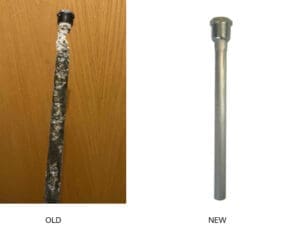 Calcium buildup is a prevalent issue that many homeowners encounter with their water heaters, and it can have significant negative impacts on the efficiency and longevity of the system. Over time, as water heats up and cools down within the tank, minerals present in the water, particularly calcium and magnesium, tend to settle at the bottom of the unit. This accumulation of loose minerals creates a layer of deposits that not only makes it increasingly difficult for the water heater to generate hot water efficiently, but also forces the appliance to work much harder than necessary.
Calcium buildup is a prevalent issue that many homeowners encounter with their water heaters, and it can have significant negative impacts on the efficiency and longevity of the system. Over time, as water heats up and cools down within the tank, minerals present in the water, particularly calcium and magnesium, tend to settle at the bottom of the unit. This accumulation of loose minerals creates a layer of deposits that not only makes it increasingly difficult for the water heater to generate hot water efficiently, but also forces the appliance to work much harder than necessary.
In gas water heaters, this build-up can lead to the formation of hot spots on the tank’s surface. These hot spots can create uneven heating, putting excessive stress on the tank and potentially causing it to weaken or fail entirely, which could result in costly repairs or the need for a complete replacement. Similarly, electric water heaters are not immune to the effects of mineral deposits. The lower heating element can become coated with these minerals, leading to malfunctions that impair the unit’s ability to heat water effectively. Over time, this can cause the element to fail, resulting in a significant inconvenience for the household.
To address these issues, De Hart Plumbing Heating & Cooling offers several water heater rejuvenation packages tailored to restore optimal function to your heating unit. One of the key services included in these packages is the replacement of the anode rod. This component plays a crucial role in the maintenance of a water heater, as it attracts and collects the metallic elements present in the water, thereby preventing rust and corrosion within the tank. However, as the anode rod ages, it can become depleted, leading to a buildup of these metals, which may cause the water to develop an unpleasant odor that can be quite off-putting.
Call our office today to schedule your water heater rejuvenation!
